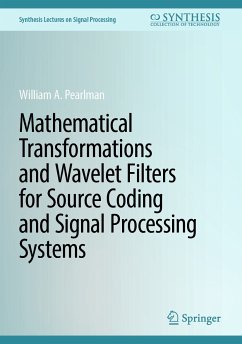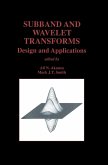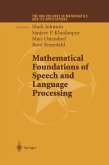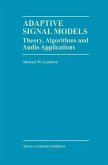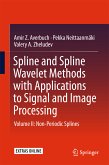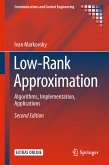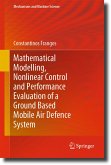This book teaches the fundamentals and mathematical formulas of reversible transformations (or transforms) that are used in many source coding and signal processing systems. These mathematical transforms are often necessary or crucial toward reduction of data storage and transmission rate requirements. The author emphasizes the wavelet transform as it is the preferred transform for practical application in many coding and signal processing systems. The book also covers the tap (coefficient) values for some of those filters that satisfy the perfect reconstruction property. Examples of the use of filter-based and matrix-based transforms are also provided. This self-contained work contains insight gained through research and practice, which makes it a valuable reference and tutorial for readers interested in the subject of mathematical transforms.
This book:
- Teaches the fundamentals and mathematical formulas of reversible transformations, as well as their applications
- Highlights the wavelet transformation, which is the preferred transform for many practical applications
- Contains insight gained through research and practice, making it a valuable resource those interested in the topic
Dieser Download kann aus rechtlichen Gründen nur mit Rechnungsadresse in A, B, BG, CY, CZ, D, DK, EW, E, FIN, F, GR, HR, H, IRL, I, LT, L, LR, M, NL, PL, P, R, S, SLO, SK ausgeliefert werden.
Hinweis: Dieser Artikel kann nur an eine deutsche Lieferadresse ausgeliefert werden.

